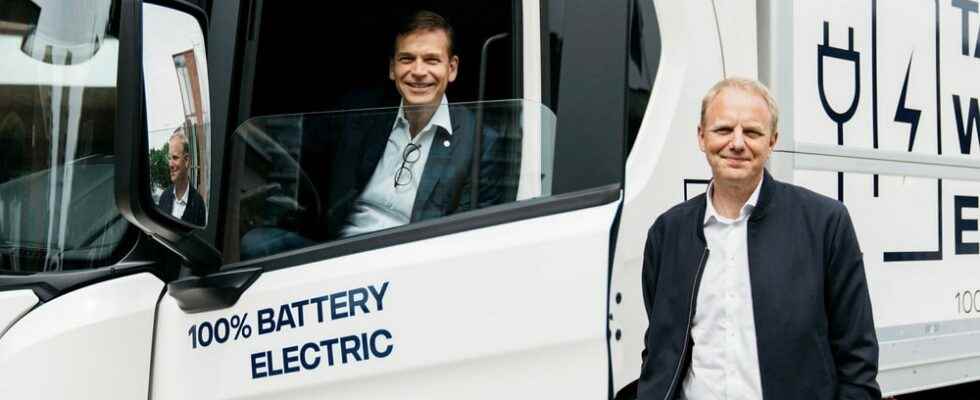They each lead their large global company, where the climate-related goals are based on science. In plain text, this means that they will contribute to the Paris Agreement’s goal of limiting global warming to below 2 degrees, with a view to 1.5 degrees.
They both have clear goals for how to reduce their own emissions, but also a common problem.
– If we look at our products from the cradle to the grave, more than 90 percent of our climate impact comes from when our vehicles roll, says Scania’s CEO Christian Levin.
It is called indirect emissions or, in the language of climate negotiators, Scope 3. Electrolux base Jonas Samuelson puts it in other words:
– Our carbon footprint from transport is several times greater than the total emissions from all our factories in 17 countries.
Facts. A standard for climate emissions
In the context of climate negotiations, there is often talk of a standard called GHG, which contains three categories (scope).
Scope 1 is direct emissions from, for example, a car or a factory, in Scope 2 ends up emissions from, among other things, the electricity required at a company. Scope 3 is about indirect emissions, it can be anything from business trips to lifetime emissions from a truck.
Show more
So Scania needs to sell more of its more climate-friendly trucks, Electrolux needs to ensure that their freight forwarders use more of them.
– We have a long way to go. Today, electric trucks account for one percent of our sales, in four years we want the figure to be 10 percent, says Christian Levin.
– We ship 60 million products annually and must make the transports climate-friendly. Not least, it requires more and more of our customers, says Jonas Samuelson.
That’s why the global giants are hooked, a number of pilot projects around the world will become commercial everyday. The companies’ experts will work together to find the best solution in each market. It is everything from electric trucks in Sweden, Italy and Switzerland to biogas operation in Brazil, Argentina and Chile.
– We are increasing the pressure, it is about finding solutions that benefit both companies, says the Scania manager.
But on the whole, is your collaboration a drop in the ocean?
– In a way, but we are still big enough to be able to influence – and get others to follow, says the Electrolux base.
A crucial question is how Scania can persuade a haulier to buy an electric truck for three million instead of a traditional one that runs on diesel for one million.
– An idea here is that Electrolux offers longer contracts for its freight forwarders, which means that they can get money on it, says Christian Levin.
Another part of the collaboration is to push for more charging stations. Scania and Volvo will jointly invest SEK 8 billion to build 1,500–2,000 charging stations in eight European countries, including Sweden. Here, the EU must give OK, it has not come yet.
– But the charging infrastructure we must have traction from politics with, here it goes far too slowly, says Christian Levin.
He is also not particularly impressed by the European Parliament’s decision this week not to tighten emissions regulations.
– It’s really sad, we want a price to be set for emissions from trucks. For a long time, our industry was reluctant to new rules, today we run before the legislators, Levin claims.
Facts. Electrolux and Scania
Electrolux is a global white goods giant that manufactures, among other things, washing machines, dishwashers, refrigerators, stoves and vacuum cleaners and has production in 17 countries, but no longer in Sweden. The largest owner is Wallenberg-controlled Investor.
The group, which also owns the AEG and Frigidaire brands, has 52,000 employees and sells in 120 markets. Sales in 2021 were SEK 126 billion, net profit 4.6 billion.
Scania manufactures trucks and buses and has 50,000 employees in 100 countries. In Sweden, production is conducted in Södertälje, Oskarshamn and Luleå, but there is also production at factories in the Netherlands, France, Brazil and Argentina.
Scania is part of Volkswagen’s company for heavy vehicles, Traton. There are also German MAN, Brazilian Volkswagen Caminhões and American Navistar.
Last year, Scania had a turnover of SEK 146 billion, the net profit was just over SEK 7 billion.
Show more
